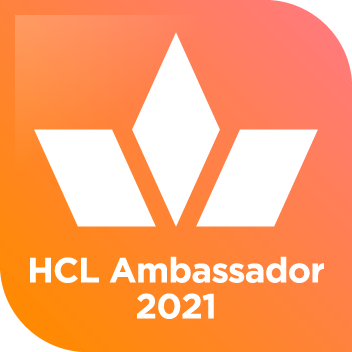May 25 2010 Tuesday
Corporate Social Software, For Sale! (3)
I have blogged about social software before. It will be the third episode (!) of this series..
Since Lotus Connections and Quickr are very hot products in IBM Sales teams, I have read and seen too many presentations, reports or sales documents until now. Frankly, I found many of them useless. Because all vendors, including IBM try to sell social software products as 'yet another corporate software'. They think that it is a matter of 'believing or not' the wind of social software. I define this selling process in a very sarcastic way:
1. Convince that Facebook and Twitter is widespread,
2. Convince that knowledge is disappearing between workers of different ages,
3. Convince that web 2.0 is good,
4. Convince that we (as vendor) are good,
5. Show some Gartner graphs,
6. Sum up and sell!
Of course, there are lots of market intelligence underneath this marketing behavior. Also these are extremely true; market structure, business methodologies and employee characteristics are changing. But as I said before, social software is not 'yet another solution' to be implemented. Also, hold on and think about it: These developments are so recent that nobody could foresee that these will solve our immortal problems like 'knowledge loss'. Gartner does not advice these products because they might be super useful! Instead, they match vendors' messages and analyst reports with customers' whining and try to foresee the resulting trends.
Oddly, as I blogged before, this selling technique works. A post modern corporation guru's advises are combined with a couple of cleverly edited success stories, result in a new business fashion. But what about non enterprise segments? Are they going to wait for more mature products?
I am talking with IT managers of SME companies. Many of them think that social software is 'large' for mid-sized companies. They are not interested in opening intra-firm blogging sites. Because employees have no time to blog! They have limited number of experts inside companies, which eliminates the need for expertise exchange platforms or discussion forums. I think inside (micro)blogging, building intra-firm communities or social bookmarking seems 'big' messages for 'small' companies. For small and mid-sized companies, IBM and business partners should develop more realistic and pragmatic selling messages. Lotus Quickr, for example, does not contain that big messages inside. It is a simple, easy to install and manageable software. We'll cover it on next blogs.
What are small messages?
I will explain the components of social software and compare different products in next blogs...
Since Lotus Connections and Quickr are very hot products in IBM Sales teams, I have read and seen too many presentations, reports or sales documents until now. Frankly, I found many of them useless. Because all vendors, including IBM try to sell social software products as 'yet another corporate software'. They think that it is a matter of 'believing or not' the wind of social software. I define this selling process in a very sarcastic way:
1. Convince that Facebook and Twitter is widespread,
2. Convince that knowledge is disappearing between workers of different ages,
3. Convince that web 2.0 is good,
4. Convince that we (as vendor) are good,
5. Show some Gartner graphs,
6. Sum up and sell!
Of course, there are lots of market intelligence underneath this marketing behavior. Also these are extremely true; market structure, business methodologies and employee characteristics are changing. But as I said before, social software is not 'yet another solution' to be implemented. Also, hold on and think about it: These developments are so recent that nobody could foresee that these will solve our immortal problems like 'knowledge loss'. Gartner does not advice these products because they might be super useful! Instead, they match vendors' messages and analyst reports with customers' whining and try to foresee the resulting trends.
Oddly, as I blogged before, this selling technique works. A post modern corporation guru's advises are combined with a couple of cleverly edited success stories, result in a new business fashion. But what about non enterprise segments? Are they going to wait for more mature products?
I am talking with IT managers of SME companies. Many of them think that social software is 'large' for mid-sized companies. They are not interested in opening intra-firm blogging sites. Because employees have no time to blog! They have limited number of experts inside companies, which eliminates the need for expertise exchange platforms or discussion forums. I think inside (micro)blogging, building intra-firm communities or social bookmarking seems 'big' messages for 'small' companies. For small and mid-sized companies, IBM and business partners should develop more realistic and pragmatic selling messages. Lotus Quickr, for example, does not contain that big messages inside. It is a simple, easy to install and manageable software. We'll cover it on next blogs.
What are small messages?
- Replacing 'damned file server' with a tagged, commented, voted and versioned file repositories.
- Using wiki's for content creation
- Seeing co-worker profiles without any development effort
- Sharing mutual calendars of teams
- Managing small projects with activities
- ... ...
I will explain the components of social software and compare different products in next blogs...
Serdar Basegmez
|
May 25 2010 04:00:00 AM
|
Corporate Information Systems Lotus Connections Social Software Lotus Quickr Articles
|




